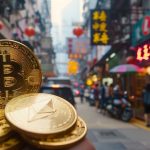A version of this story first appeared in CNN Business’ Before the Bell newsletter. Not a subscriber? You can sign up right here. You can listen to an audio version of the newsletter by clicking the same link.
JPMorgan Chase CEO Jamie Dimon is worried about the future of the free world.
“The geopolitical situation is probably the most complicated and dangerous since World War II,” Dimon said during a talk at the Economic Club of New York on Tuesday.
Dimon pointed to the Ukraine war, where “300,000 Russian troops invaded a democratic nation on the border of NATO and threatened nuclear blackmail,” as an example of the unprecedented global climate. “You also have the terrorist activity in Israel, which is now a little bit of a powder keg in the Middle East,” he added.
All of this conflict, he said, is affecting “oil, gas, trade and military relationships.”
On top of that, he said, the US-China relationship has become even more complex because of their different positions on the war in Ukraine.
“The world order that formed after WWII, Bretton Woods, WTO [the World Trade Organization], and the UN is kind of being challenged,” he said. “If this doesn’t go the right way, you could easily see a world that goes into more chaos as people realign their allies and relationships.”
Dimon said on Tuesday that he was surprised things haven’t gotten worse for oil and gas prices.
A recent increase in gas prices is reversing as the Middle East fears gradually unwind. The national average for a gallon of regular fell by a penny to $3.66 a gallon Wednesday, according to AAA. That’s still 13 cents higher than a month ago, but it’s flat from a year ago.
“It doesn’t take a lot to send oil and gas prices back up to $120,” he said. US oil currently sits around $83 per barrel.
But the current geopolitical landscape, said Dimon, is far more important than the current state of the economy.
“I don’t even like talking about them in the same breath,” he said. “One of them is about the future of the free world and one is about something we’re all used to, like the weather.”
If Russia does win in Ukraine, said Dimon, NATO — the North Atlantic Treaty Organization founded in 1949 to guarantee the freedom and security of its member states through political and military means — would be tested.
“That’s really dangerous,” he said.
This is not the first time Dimon has warned that the world is on the brink of a massive realignment.
In his annual letter to shareholders earlier this month Dimon rang the alarm, warning that geopolitical worries should come before any economic concerns.
A growing deficit: Dimon also expressed concern about the growing US deficit and debt on Tuesday.
The country’s national debt is now over $34.5 trillion, or about $103,000 for every American. That means the country spends nearly $2.4 billion in interest each day.
Federal Reserve Chair Jerome Powell noted earlier this year that “the US is on an unsustainable fiscal path… the debt is growing faster than the economy.”
The US now spends more on debt service than on national defense and security.
Historian Niall Ferguson has also warned that empires often collapse when the costs of servicing their debt exceed the costs of national security. “Any great power that’s spending more on debt service than defense is probably not going to be great for much longer,” he said in a recent interview.
Dimon, who joked that he would like to be president only if he didn’t have to campaign, referenced Ferguson’s remarks on Tuesday, adding that he worried that excessive government borrowing would keep inflation higher for longer.
Tesla reported its first quarter adjusted earnings plunged 48%, falling short of lowered Wall Street forecasts, but it assured investors that it plans to move ahead with a cheaper model due out next year, reports my colleague Chris Isidore.
The company reported a 9% drop in total revenue, which also missed analyst estimates. And its profit margin declined by 2 percentage points.
But Tesla heartened some investors by announcing it plans to move ahead with a lower priced model, which it said will go into production in the second half of 2025.
Tesla did not give much in the way of details about this new, lower-priced model it is promising, such as a target price or its production volumes. And CEO Elon Musk and Tesla have a history of not living up to timelines on vehicle launches. But the promise that it is still moving ahead with a lower-priced model was assuring news in the wake of reports that it would drop plans for the vehicle altogether.
The Federal Trade Commission on Tuesday voted to ban for-profit US employers from making employees sign agreements with noncompete clauses. Such a ban could affect tens of millions of workers, reports my colleague Jeanne Sahadi.
President Joe Biden soon after the announcement said, “The FTC is cracking down on ‘non-compete agreements,’ contracts that employers use to prevent their workers from changing jobs even if that job will pay a few dollars more, or provide better working conditions. Workers ought to have the right to choose who they want to work for.”
The FTC’s decision was the result of a 3-to-2 vote among its five commissioners. The two commissioners who dissented from the majority said they believed the rule to be “unlawful” and “won’t survive legal challenge.” The US Chamber of Commerce has already said it will sue the FTC as early as this week for what it views as the agency exceeding its administrative authority.
The FTC estimates that 30 million people – one in five US workers – are bound by a noncompete clause in their current jobs. And for most of them, the agency asserts, such a clause restricts them from freely switching jobs, lowers wages, stifles innovation, blocks entrepreneurs from starting new businesses and undermines fair competition.
Read the full article here



